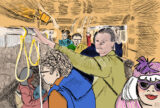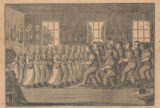We’re Telling the Wrong Border Stories
If We Want to Stop Fighting About Immigration, We Need New Narratives That Balance Security and Compassion
Borders are meant to create order and security. But around the world, authoritarians seeking to enhance their power are pushing dangerous border narratives to sow chaos and exploit insecurity. Democratic societies have failed to understand how these narratives are weaponized, putting migrants in harm’s way and our way of life at risk.
How can we counter the fear-based migration narratives that dominate our political and cultural discourse? What sort of story can answer narratives that—to quote a new report from the Migration Policy Institute, RAND Corporation, the Metropolitan Group, and the National …










